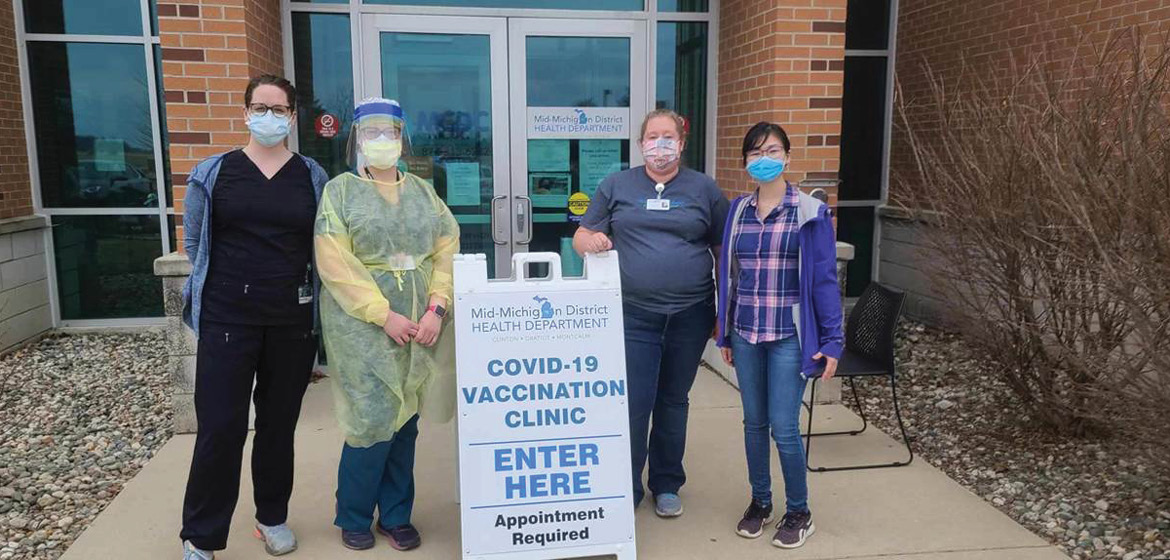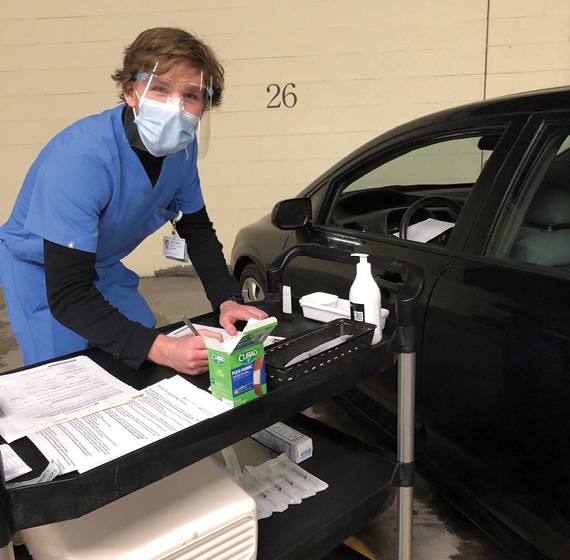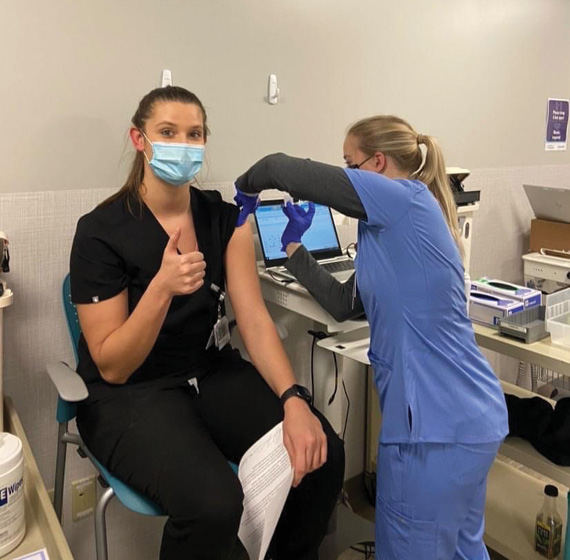College of Human Medicine Community Health Pandemic Response

Service has always been an integral part of the College of Human Medicine (CHM). Students at seven campuses/locations serve with different health organizations to fulfill a requirement for their degree and gain valuable experience and insight into the world of medicine. The COVID-19 pandemic dramatically shifted students from the typical community-engaged learning experience that the program normally offered.
The demands the virus placed on the healthcare system meant CHM needed to shift from students doing their usual service projects to addressing more pressing needs. CHM students participated in the Community Health Pandemic Response, where they each completed a minimum of 20 service hours in the community to help stop the spread of the pandemic.
“We have them do a lot of simulation—where there are simulated patients—so now they had real patients who they were counseling about testing or counseling about the vaccine and using all their skills,” Dr. Margaret Thompson, CHM interim associate dean for Academic Affairs, said.
At a time when in-person volunteering was not an option for most, the experience and knowledge of the students in the College of Human Medicine made them prime candidates to lend a hand in the places where help was desperately needed. All students took a course on COVID-19 and how it is spread to prepare them to go out in the community and combat the virus.
Students from CHM, as well as the College of Osteopathic Medicine and the College of Nursing, volunteered at COVID screening sites, vaccine clinics, and other places to address the community needs brought to light by the pandemic. Outside of the more traditional medical roles, CHM students also got involved with the MSU Food Bank to combat food insecurity, and some students also answered the call for vaccinated volunteers to work as poll workers during the 2020 U.S. presidential election.
Participating in the Community Health Pandemic Response may have been a requirement for students, but they saw it as an opportunity to connect with and support the community around them, utilizing the knowledge they had learned in their courses.


“This is going to be a historic event, and they were at the forefront of it,” Jonelle Golding, former CHM advisor and current Interim Director of University Advising in the Office of the Associate Provost for Undergraduate Education, said. “It’s a reminder of why they are doing what they are doing. Those are the kind of experiences that drive students to persevere through a medical career.”
It is impossible to overstate the significance of what medical students, at MSU and across the country, were able to overcome to help combat the pandemic. It is certainly an experience that they will not forget and that we should not either.


